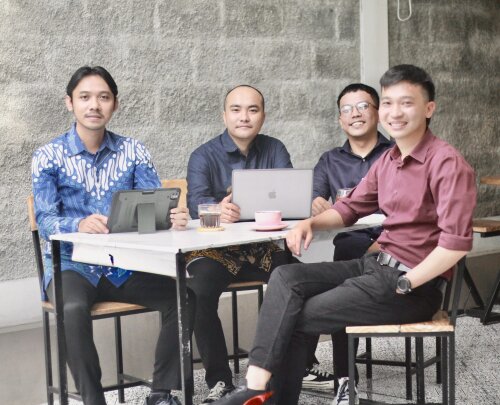Best Job Discrimination Lawyers in Indonesia
Share your needs with us, get contacted by law firms.
Free. Takes 2 min.
Or refine your search by selecting a city:
List of the best lawyers in Indonesia
About Job Discrimination Law in Indonesia
Job discrimination in Indonesia is addressed under various national laws designed to protect workers' rights and encourage fair employment practices. The Indonesian Constitution, Labor Law No. 13 of 2003, and the Law on Human Rights ensure that employees receive fair treatment regardless of race, religion, gender, or disability. Despite these legal frameworks, discrimination can still occur, emphasizing the need for robust policies and legal interventions.
Why You May Need a Lawyer
Individuals may require legal assistance in several scenarios involving job discrimination. These can include instances where an employer discriminates against an employee or job applicant based on race, sex, religion, or age. Additionally, seeking legal help is crucial when discriminatory practices result in wrongful termination, denial of promotion, unjust financial compensation, or harassment in the workplace. A lawyer specializing in employment law can aid in investigating claims, negotiating settlements, and representing individuals in court.
Local Laws Overview
The primary legal framework addressing job discrimination in Indonesia includes:
- Labor Law No. 13 of 2003: This law stipulates equal rights and opportunities in employment, mandating equality regardless of any identifiable characteristic. It also emphasizes the prevention of discrimination in hiring, payment, opportunities, and treatment.
- Constitution of Indonesia: Ensures every citizen's right to work and to proper and decent remuneration, prohibiting discrimination through its Articles 27 and 28B.
- Law on Human Rights No. 39 of 1999: This law particularly addresses the rights of workers to be free from discriminatory practices and reinforces equitable working conditions.
Frequently Asked Questions
What constitutes job discrimination in Indonesia?
Job discrimination involves unfair treatment of an employee or job applicant based on race, religion, ethnicity, gender, age, disability, or other personal characteristics.
How can I prove job discrimination?
Proof may involve witness testimonies, documentation of discriminatory practices, performance evaluations, and any records that support claims of unfair treatment.
What should I do if I face discrimination at my job?
Consider documenting incidents, maintaining communication records, and consulting with a legal professional to evaluate your case and possible actions.
Is there a legal deadline for filing a discrimination complaint?
Time limits can vary; thus, it is recommended to seek legal advice promptly to ensure compliance with any applicable deadlines.
Can I file a complaint anonymously?
Filing anonymously might limit legal proceedings; however, initial consultations with legal advisors can be confidential.
What outcomes can I expect from a discrimination complaint?
Possible outcomes include reinstatement, compensation, promotion, policy changes, or other remedial actions ordered by the legal process.
Are there any governmental bodies that help with job discrimination claims?
The Ministry of Manpower and Transmigration and the Indonesian National Commission on Human Rights offer support and guidance in handling discrimination claims.
Can mediation resolve discrimination disputes?
Mediation can be a viable option for some disputes, providing a mutual settlement without entering court proceedings.
Is retaliation prohibited following a discrimination complaint?
Yes, any form of retaliation against someone who has filed a discrimination complaint is illegal under Indonesian law.
Do these laws apply to foreign workers in Indonesia?
Yes, protective laws typically extend to all workers within Indonesia, including foreign nationals, ensuring equal treatment and rights.
Additional Resources
Consider reaching out to the following organizations for assistance:
- The Ministry of Manpower and Transmigration
- Indonesian National Commission on Human Rights
- Legal Aid Institutions (Lembaga Bantuan Hukum)
- Human Rights NGOs focusing on worker rights
Next Steps
If you require legal assistance, consider the following steps:
- Document all relevant information and incidents related to the discrimination you are experiencing.
- Consult with a lawyer specializing in employment law to explore your legal options and represent your interests.
- Contact governmental bodies or legal aid organizations for additional support and guidance.
- Consider mediation or filing a formal complaint if necessary, with professional legal assistance to ensure adherence to all procedural requirements.
Lawzana helps you find the best lawyers and law firms in Indonesia through a curated and pre-screened list of qualified legal professionals. Our platform offers rankings and detailed profiles of attorneys and law firms, allowing you to compare based on practice areas, including Job Discrimination, experience, and client feedback.
Each profile includes a description of the firm's areas of practice, client reviews, team members and partners, year of establishment, spoken languages, office locations, contact information, social media presence, and any published articles or resources. Most firms on our platform speak English and are experienced in both local and international legal matters.
Get a quote from top-rated law firms in Indonesia — quickly, securely, and without unnecessary hassle.
Disclaimer:
The information provided on this page is for general informational purposes only and does not constitute legal advice. While we strive to ensure the accuracy and relevance of the content, legal information may change over time, and interpretations of the law can vary. You should always consult with a qualified legal professional for advice specific to your situation.
We disclaim all liability for actions taken or not taken based on the content of this page. If you believe any information is incorrect or outdated, please contact us, and we will review and update it where appropriate.
Browse job discrimination law firms by city in Indonesia
Refine your search by selecting a city.















